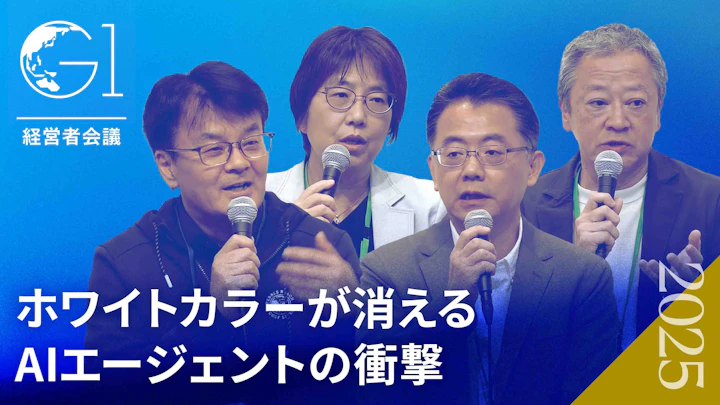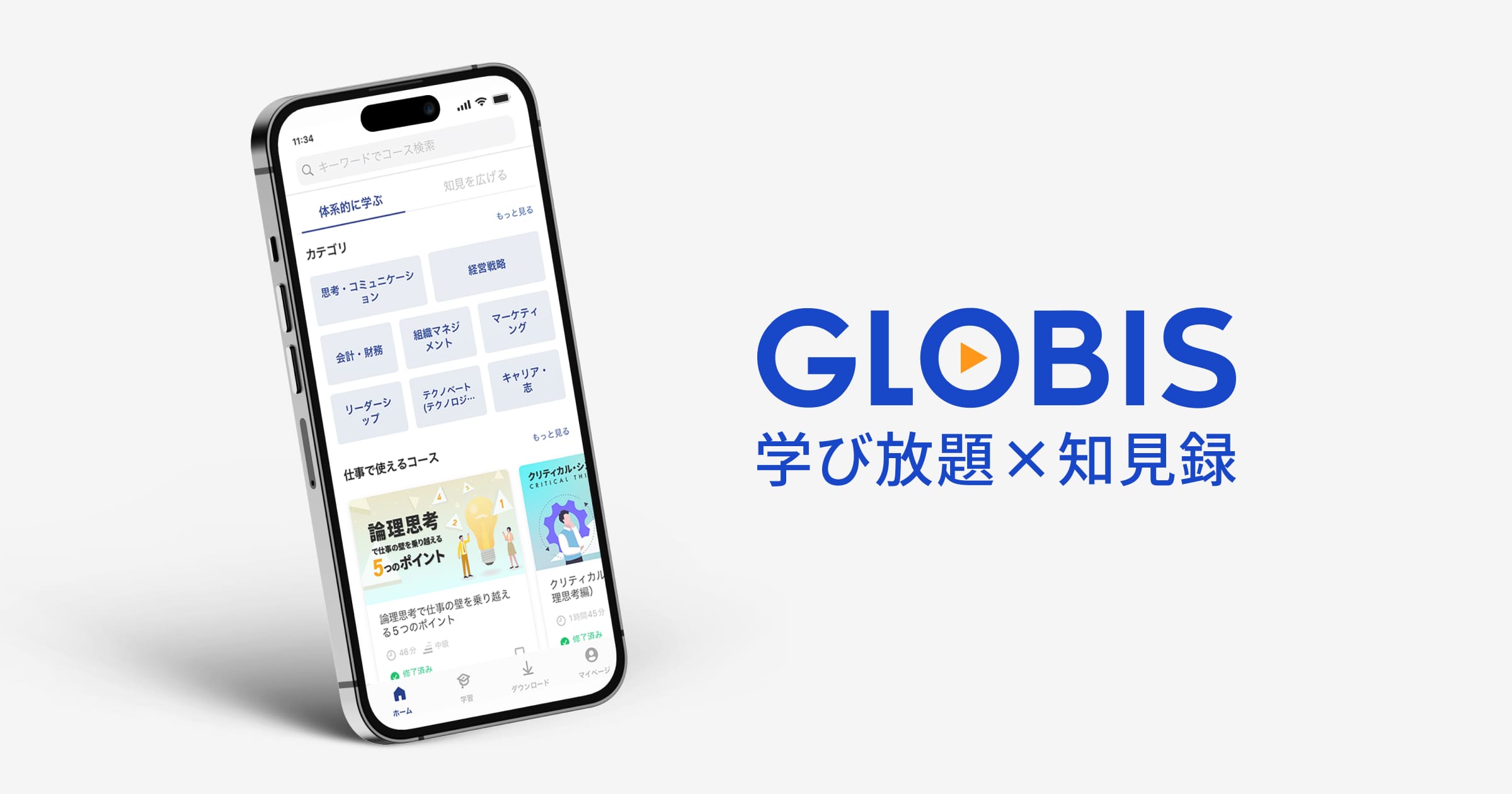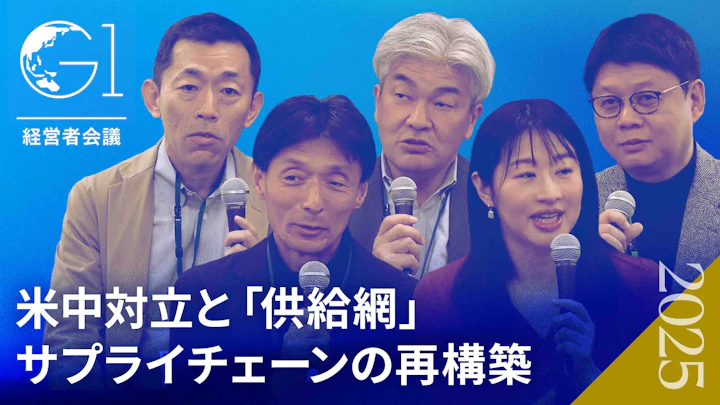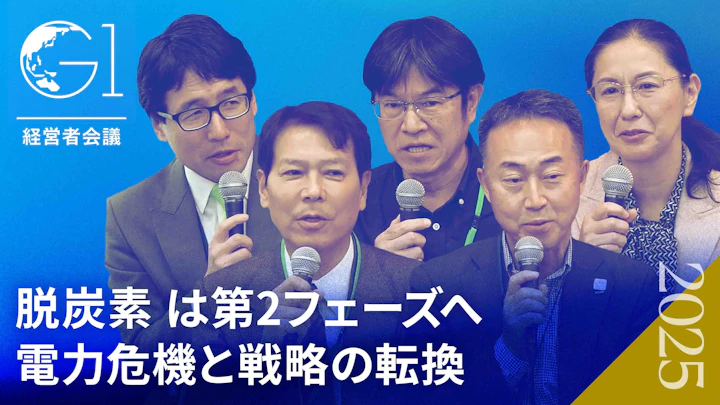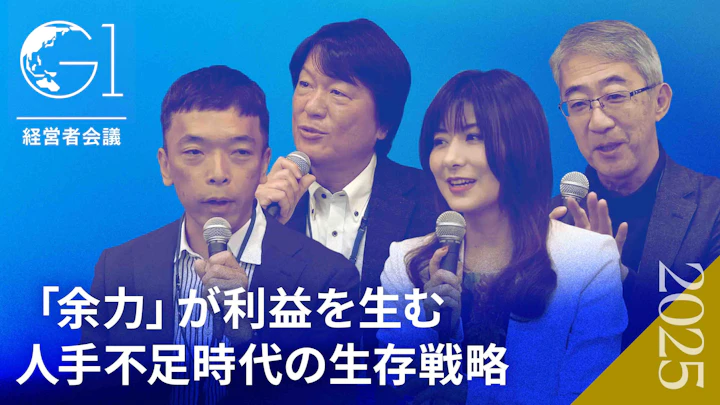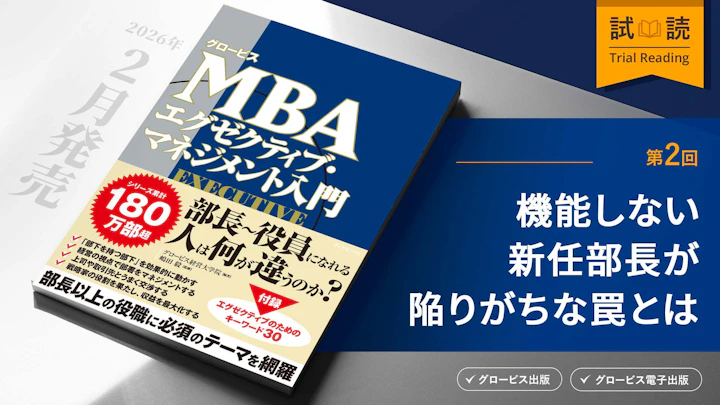大阪でのスピーチを終え、新大阪から特急「はるか」で関空に向かう。これからソウルに飛び、翌日午後に羽田に帰国予定だ。心配なのは、台風だ。外は風が強く、雨が降りしきっている。「はるか」が右旋回した。もうそろそろ海を渡り、関空に到着する予定だ。
関空のラウンジで仕事をしていると、ツイッターで、「台風26号接近、日航・全日空の欠航相次ぐ」とのニュースが飛び込んできた。本当に僕はラッキーだ。関空ではなく羽田からだったら、ソウルに飛べなかった可能性が高い。
仁川に到着。雨は降っていない。気温は11度。これから個人的に投資をした会社の経営陣と食事会だ。この会社は「ザイオネックス社」といい、サプライチェーンのソフトウェアをつくっている。3人のMITの博士が13年前に創業した会社だ。僕はこの会社に13年前に投資をしていて、筆頭株主だ。4人でこの会社の株の75%を所有する。
キムチ、チヂミ、プルコギ等の韓国料理に舌鼓を打ちながら、マッコリを飲む。韓国の近況、会社の概況、家族の状況について報告し、意見交換する。13年間も付き合っているから、気心が知れた仲間だ。
今回の韓国訪問目的は、世界知識フォーラムに登壇するためだ。かれこれもう5年連続での登壇となる。かつては頻繁にソウルに来ていたが、最近は年に一回しか韓国を訪問しない。
そんな中でこの食事会は、年一回の恒例イベントになりつつある。最近ザイオネックス社の日本法人をつくったばかりだから、韓国で会うよりも日本で会うことの方が多くなったからだ。社長のユ・ドンシック氏には、先のG1グローバルにもご登壇いただいた。これからも、ガンガンに頑張って欲しい。
ほろ酔い気分で、ウォーカーヒルにあるホテルにチェックインした。そして、翌日のスピーチの原稿をチェックした。僕は今回初めてスピーチ原稿を用意した。理由は、タクシン元タイ国首相やキショール・マブバニ氏などのアジアの著名な人々が登壇するパネルに、日本代表として登壇するからだ。しかもモデレーターからは「冒頭に各自15分、喋ってほしい」と言われている。最近の日韓関係は、微妙な状態にある。しっかりと準備をして、メッセージを伝えたい。
朝起きて、まずはフォーラム事務局に行き受付を済ませ、スピーチ原稿をプリントアウトした。漢河が見えるプールでひと泳ぎして、遅めの朝食をとる。すると、もう集合時間になっていた。
事前打ち合わせの会場に行くと、もうタクシン氏が来ていた。今回のパネリストはとてもグローバルだ。モデレーターは韓国からで、パネリストは香港、シンガポール、タイ、ノルウェー、そして日本からだ。
簡単に打ち合わせた後にメイン会場に移動して、壇上に座った。そしてセッションが始まった。僕のスピーチは3番目だ。僕が紹介され、以下の通り、英語でゆっくりと話し始めた。
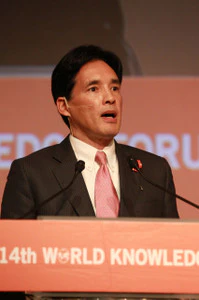
Asia is One
Tenshin Okakura, who is famous for writing a best-selling book called The Book of Tea said, “Asia is one” in the opening line of the book he published in 1904. The book was titled The Ideals of the East.
He said “Asia is one” more than 100 years ago, when most of Asia was colonized by Western powers. Now that all the nations are independent and prospering, it was once again appropriate to discuss the topic of “Asia is One” at the World Knowledge Forum in Seoul, Korea. I would like to thank the organizer for holding this session.
Asia has prospered through the so-called “Flying Geese Economic Model.” After World War II, Japan took the lead, the 4 tigers (Korea, Hong Kong, Taiwan and Singapore) caught up, and other ASEAN nations followed. After the economic liberalization of China in 1978, Asia has enjoyed even greater economic expansion and deeper interdependence.
However, the road to prosperity was not easy. Japan was confronted with the burst of its economic bubble in 1990, and Asia had to overcome first the Asian Financial Crisis in 1997 and then the Lehman Shock in 2008. Asia now represents more than 30% of world’s GDP. It is estimated to become more than 50% by 2050.
Interdependency has increased even more. Let me take the iPad and the iPhone as examples. The high-tech components and fine materials come from Japan and neighboring countries, the memories and displays are produced in Taiwan and Korea, and the final products are assembled in China. Even though the political situation has deteriorated, economic integration is continuing.
Let’s talk about free trade. First, ASEAN reached an agreement, followed by ASEAN +1 agreements with Japan, China and Korea, respectively.
Now we are discussing an ASEAN+6 that has become the RCEP (Regional Comprehensive Economic Partnership). This includes Australia, New Zealand and India. Further, there is a 3-way FTA discussion among Japan, China, and Korea.
Also, there is a TPP (Trans-Pacific Partnership), which includes Canada, the U.S., Mexico, Peru and Chile.
One might wonder what the best structure is. TPP, RCEP, something else?
My view as an entrepreneur is simple.
1) The opening of markets is good, no matter what the structure or initiative may be. TPP, RCEP, 3-way, or whichever.
2) The sooner is the better.
3) The larger market and the more comprehensive, the better.
I welcome all of the initiatives: RCEP, TPP, and 3-way of Japan-China-Korea. I am not sure whether we should confine ourselves into Asia by blocking the U.S., Peru, Mexico or Chile out of the FTA. The larger, the better.
It is good to have competition among each different initiative―RCEP, 3 ways, TPP―as there may be political deadlock among nations which could slow some initiatives, such as the 3-way at this moment. I believe that sooner is better.
Regarding the Korea-Japan and China-Japan relationships, the key to fostering better relationships is “grassroots interaction.” I have discussed the Senkaku/Diaoyu Island and Yasukuni issues with Chinese friends. I also discuss the pre-war history and comfort women issues with Korean friends.
I think it is important to understand that there are differences in opinions. In politics, the differences may reach a deadlock, as is the case now, but those differences should not block the dialogue. The doors should always remain open.
Further, economic and cultural interaction in the private sector should stay open, and the friendships should continue, no matter what kind of differences we may face with each other. In fact, our friendship becomes even stronger after discussing these difficult issues and having understood our differences.
If we define ourselves as Korean, Japanese, or Chinese alone, we may tend to become patriotic and solving any issue may become difficult. However, if we define ourselves to be “Asian”, we will need to collaborate as fellow Asians.
I think most of us have experiences studying abroad. Whenever we meet fellow Asians, we feel at ease and tend to make friends easier. The time will come when all of us regard ourselves as Asian, not just Korean, Chinese or Japanese.
Last night, I had great Korean food and makkori with Korean entrepreneurs whom I have known for 13 years. I invested in their company 13 years ago. In fact, this is the only company in the world I have ever invested in personally.
That Korean company is called Zionex, which was established by 3 Korean MIT PhDs 13 years ago. Zionex has become the No. 1 supply chain software company in Korea. This year they established a subsidiary in Japan, which I am supporting greatly. Zionex is now expanding to other parts of Asia, such as China and Taiwan.
Further, the business school, which I established 21 years ago called GLOBIS, has become the No. 1 MBA program in Japan in size and ranking. GLOBIS has welcomed many students from Korea and China. Further, GLOBIS employs many Koreans and Chinese as staff and faculty.
The economic integration and interaction should not stop, no matter what happens to the political situation in Asia. I believe that these private sector initiatives and friendships―
ot just politics―will realize the vision of “Asia is One.”
As long as there remains “grassroots interactions,” I feel comfortable that Asia will become as one. Thank you very much.
スピーチが終わり、その後討議に入った。そしてセッションを終えた。会場を後にすると、友人のタイ人が待っていてくれて「いやー、スピーチが素晴らしかった」と褒めてくれた。こういう時に褒められると、とてもうれしいものだ。
軽くお弁当のランチをつまみ、すぐに部屋に戻り、カジュアルな格好に着替えた。そしてリムジンで金浦国際空港に向かった。漢河沿いの高速は比較的空いていた。
「10年に一度」の規模と騒がれた台風は、既に東京を通過していたようだった。だが、前の便がキャンセルになっていたので、その分だけラウンジは満席、空いているスペースを探すのに苦労したほどだ。
ほどなく金浦を飛び立ち、夕方6時前に飛行機が着陸態勢をとった。左の窓から見える富士山の夕焼けは美しかった。
「アジアは一つ」と最初に言ったのは、岡倉天心であろう。僕がパネルの討議で伝えたのは次のことだ。
「あえて国家同士がアジアを一つにしなくても、いずれそうなるであろう。国の政治形態がバラバラ、価値観も歴史認識も違っていていいのだ。その多様性を楽しみ、違いを寛容して、一つになっていく。それがアジア的な融合であろう。欧州のようにキリスト教のみの集合体ではないのだ。一番重要なのは、草の根の交流だ。その交流があって、インターネットや技術が進化すれば、言葉の問題も無くなるであろう。そうなると、アジアは一つに自然と溶け込んでいく。ゆくゆくは、アジア人であり日本人、という時代が来ることになろう」
そんな内容を話したことを思い出しながら、夕焼けに映える富士山をじっと見つめていた。
2013年10月16日
一番町の自宅にて執筆
堀義人


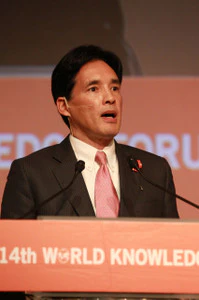
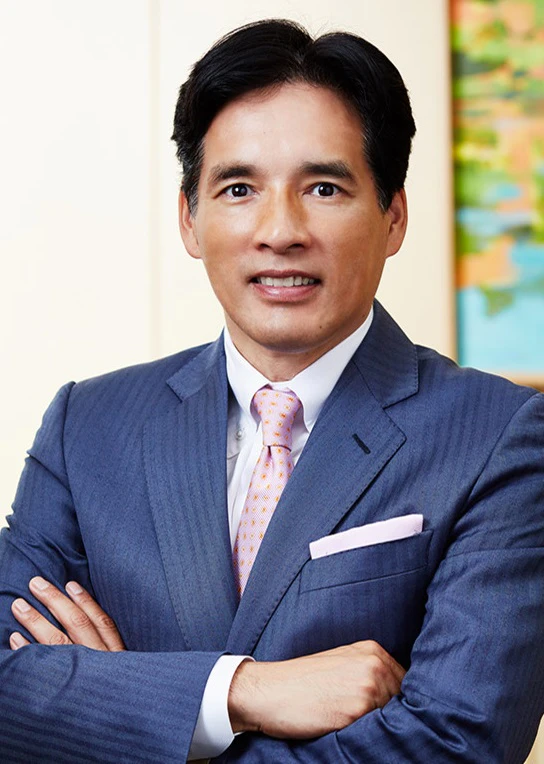

















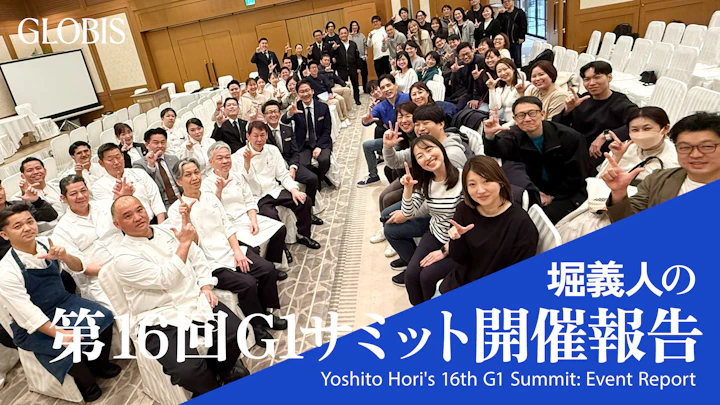
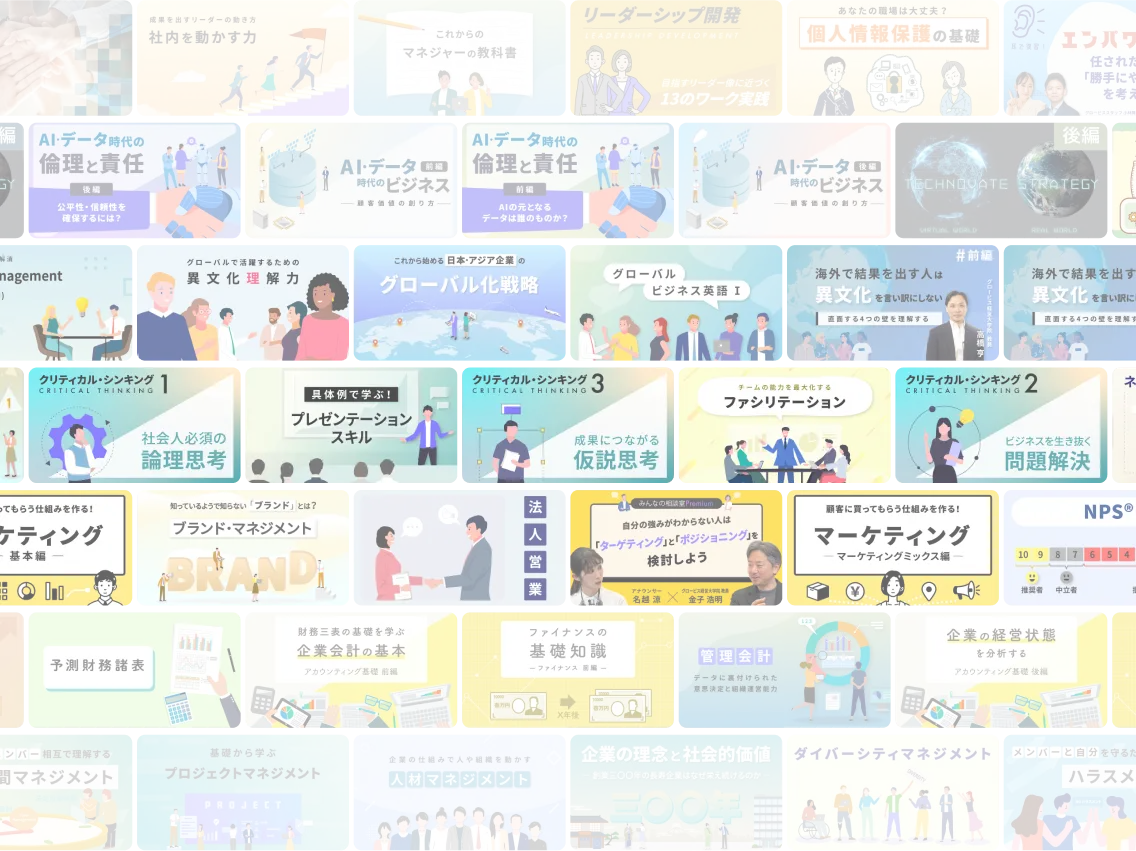
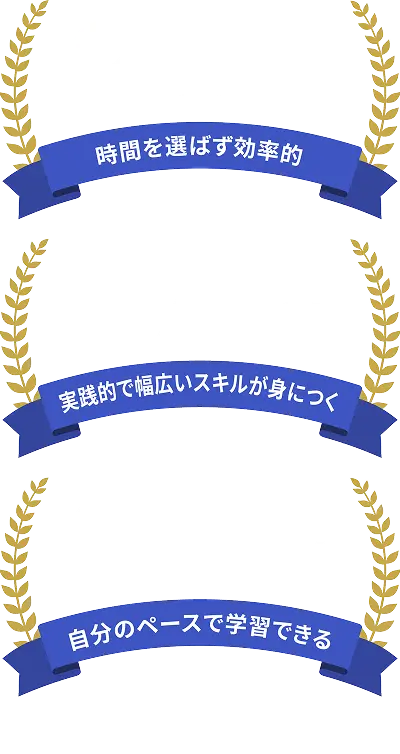

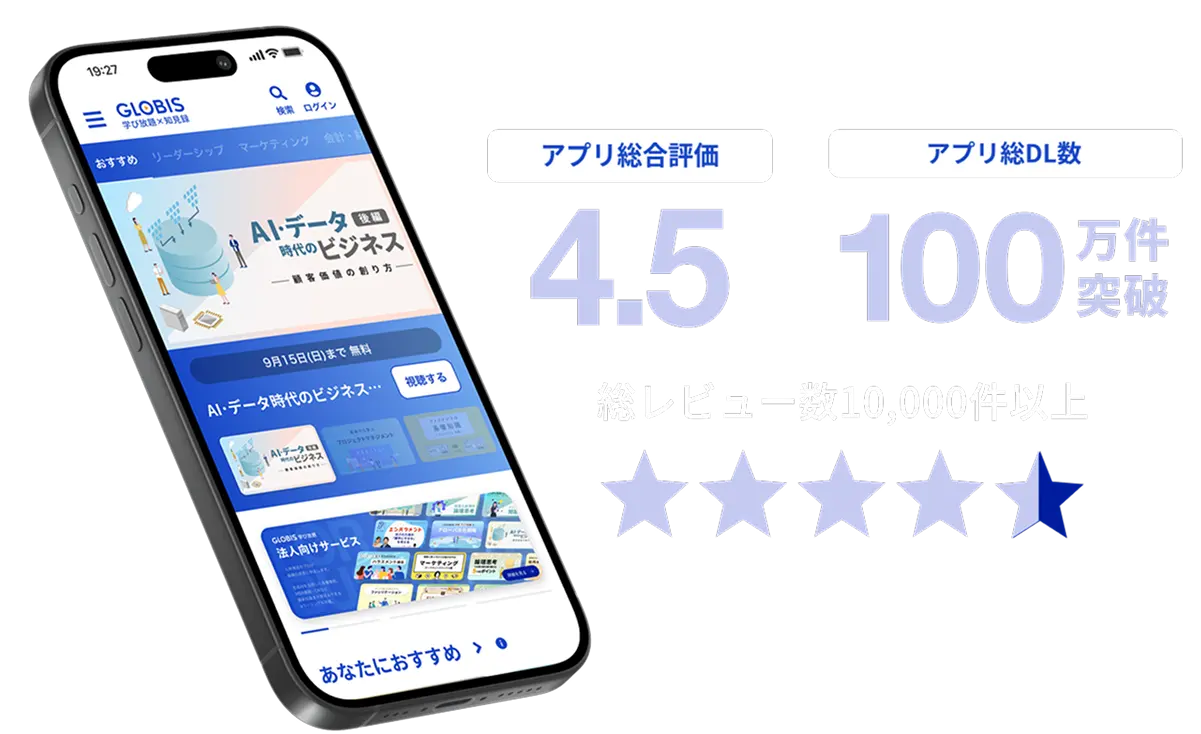





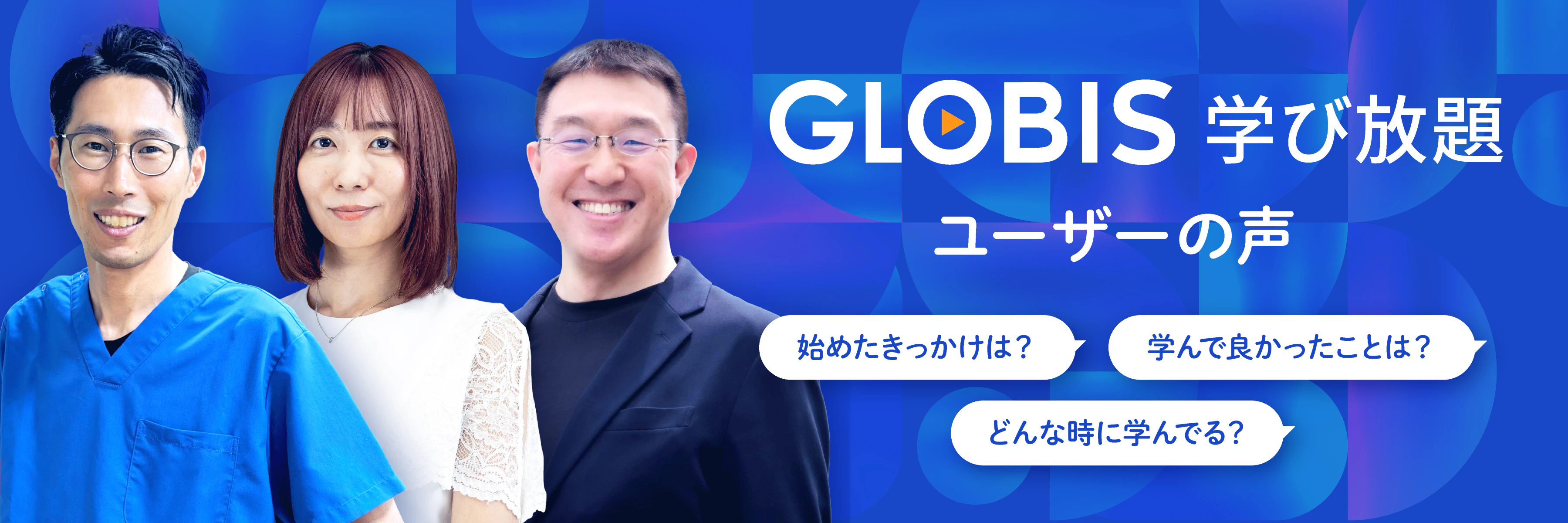
.jpg?fm=webp&fit=clip&w=720)
